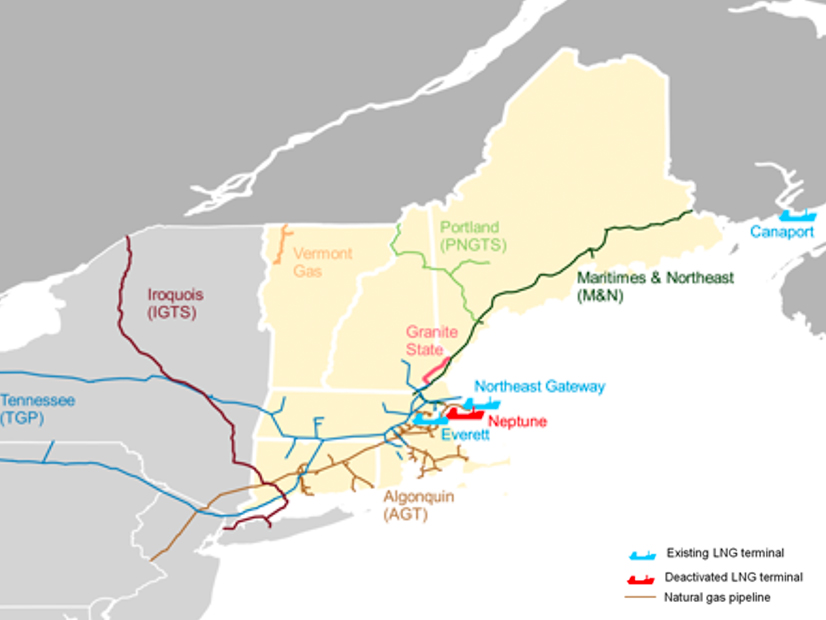FERC on Thursday dismissed a complaint by New England generators alleging that Exelon intended to game the ISO-NE market by returning Mystic Generating Station to service after its cost-of-service agreement (COS) expires in 2024 (EL20-67).
Exelon provoked anger among some stakeholders last year when it filed interconnection requests with ISO-NE to keep units 8 and 9 at the 2,001 MW Massachusetts plant running beyond the end of its $400 million COS agreement. (See Exelon Bid to Keep Mystic Units Running Provokes Outrage.)
The commission’s April 15 order dismissed two parts of the complaint as moot, noting that Exelon withdrew its interconnection queue position requests within days of the complaint and that FERC addressed disputed cost-recovery language in rehearing orders in July and December 2020.
The generators had argued that Mystic’s withdrawal from the queue positions reflected “Exelon’s intent to continue to operate Mystic 8 and 9 in some form compensated by market-based rates after the Mystic agreement has ended.”
The commission in December clarified its various orders approving ISO-NE’s cost-of-service contract with Mystic after having ruled on rehearing requests from the RTO, power generators and Connecticut regulators. FERC said that while Exelon must demonstrate that Mystic recovers only costs attributable to serving the agreement, the company will not be required to file the COS charge methodology, although costs may be reviewed in the true-up process. (See FERC Further Alters Mystic Cost-of-service Agreement.)
The commission’s July 2018 (ER18-1639-001) and December 2018 orders (ER18-1639-002) approved the RTO’s agreement for Mystic 8 and 9, including payments to the company’s economically co-dependent Everett LNG facility, the plant’s sole source of natural gas.
After withdrawing its interconnection requests, Exelon said it had no intention of repowering the units but hoped to continue operating its neighboring LNG terminal after the retirement of the power plant.
Complainants included Vistra Energy, Dynegy, NextEra Energy, NRG Power Marketing, LS Power, FirstLight Power and Cogentrix Energy Power Management, and were supported by the New England States Committee on Electricity (NESCOE), Connecticut regulators, and public systems.
They all urged the commission to extend the clawback provisions of the Mystic agreement to any iteration of units 8 and 9 that continue operating after the COS agreement and broaden them to include any amounts spent on the LNG terminal.
FERC declined that request, saying, “We already resolved this question in the July 2020 second rehearing order and complainants have failed to support a departure from our prior orders … [wherein we] determined that the clawback provision should not include Everett-related capital expenses and repair costs.”
The commission also disagreed with the complainants’ assertion that, because FERC previously limited Mystic’s fuel cost recovery of Everett fixed costs to 91% rather than the 100% that Mystic sought, it should apply the same formula to the fuel cost recovery of Everett’s capital expenditures and repair costs.
“The two situations are not analogous,” the commission said.
“But, as the commission made clear, it was reviewing the justness and reasonableness of the payments that Mystic would receive as they relate to the amount of Everett-related costs that Mystic could charge to customers. However, the clawback mechanism for Everett’s capital costs that complainants ask the commission to impose would not apply,” FERC said.





